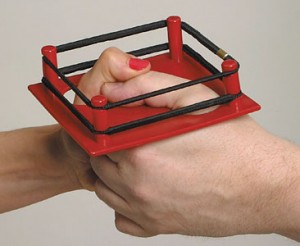
John Bleasby
The right’s and wrong’s about ‘Thank You’s’
Canadian ContractorEveryone likes to be appreciated. Some ways are more effective than others.
When it comes to ‘Thank You’s’, South Carolina-based business coach Bill Sims, likes to tell the story of being stranded in a car park with a dead car battery. He had battery cables but needed a boost. Luckily, a kind stranger happened by and connected their car batteries together, allowing Bill’s engine to roar back to life.
“I felt very grateful ….. I wanted to do something, to give something back to him. And that’s where I went wrong.”
Bill shook the man’s hand and offered him five dollars, all he had in his wallet.
“No, no, I don’t need any money,” he said.
“I realized immediately that I’d make a mistake in offering him the money. I hadn’t thought through the impact of this “reinforcer” on this particular individual….. giving him $5 made him feel cheap, as if he was a hired servant. Thus, it was a punisher, not a positive reinforcer. It offended him and reduced our relationship to a mere transaction, something external.”
Bill goes on to observe that if a driver from an auto service had rescued him instead, it might have been a different story. In fact, a tip of some sort would have been expected.
Saying ‘Thank You’ can be a tricky business. When you are the owner or manager of a company, you want to show gratitude to your employees for work that exceeded expectations, or for what was a good year for the business. No one argues that rewarding employees for good work isn’t a positive gesture!
How to make the most impact with your ‘Thank You’
However, when it comes to employee recognition, Sims claims many business owners fall back on certain default settings. “They succumb to the power of the Dark Side, the easy way out. They give people money or even cash substitutes like gift cards.” Sure, these are easy for bosses to deal with and allow employees to make their own choices for converting money into tangibles. However, there are some serious drawbacks.
Sims notes that employees will come to expect cash rewards, especially at Christmas or year end. Their mentality is driven more by thoughts of the amount of cash reward than understanding the positive message appreciating their good work. Furthermore, cash and gift cards are not very personal, which somewhat dilutes the opportunity to show how much you care about your people as individuals. In fact, Sims claims that non-cash reinforcers have 3 to 6 times the impact of cash!

A funny, inexpensive gift can be a more effective ‘Thank You’ than lump sum cash
Tips to consider when rewarding your employees.
Fun, personalised gifts, even inexpensive ones, are more effective reinforcers than lumps of cash or gift cards. Don’t make your ‘Thank You’ a transaction. If you have 10 or fewer employees, surely you know each one well enough to come up with a personalised and more memorable gift. Make the effort! If you have more staff, allocate a budget to your supervisors so they can come up with ideas for those who come under their wings.
Say ‘Thank You’ 12 months a year
Rewards don’t have to come at a certain time of year. In fact, recognising good work as soon as possible is actually better reinforcement than waiting days, weeks or months. You can even make it a surprise!
follow John on Twitter 
@john_bleasby

Leave a Reply